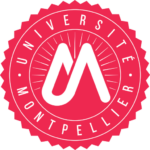Welcome to the ADAC team! We’re delighted to have you on board, ready to collaborate and reach new heights together:

| Soraya Mobaraki – Phd Student Subject: Rethinking FPGA-Accelerated Computer Architecture Simulation for Data Storage Exploration Abstract: Modern high-performance mobile computing architectures spend more than 60% of their energy on data storage and movement. However, fundamental limitations in existing evaluation tools prevent the road to innovation in memory systems. Since fabrication is more expensive and design needs to simulate before production, however, simulating a modern multicore computer is about one million times slower than real hardware, which means that the simulation of a single second takes more than 11 days. We want to improve current hardware simulations and propose a new paradigm to build user-Friendly, Fast, and Faithful Computer-system Architecture Simulations (F3CAS) tailored to the exploration of new memory architectures. F3CAS uniquely combines FPGA- acceleration with tightly coupled domain-specific soft-processors to encapsulate the simulator in a software-like abstraction. Supervisors: Lionel Torres and David Novo |

| Nassim Riadi – Phd Student Subject: Logic-Locking and hardware obfuscation schemes with side-channel attacks resilience Abstract: The globalization of integrated circuits production flow has lead to many new vulnerabilities such as IC piracy, over-production, or even reverse engineering. The Logic-Locking is one of The DFTr (Design For Trust) solutions that aims to protect the IP owner. The objective of this thesis is to suggest new Logic-Locking schemes with countermeasures against side-channel attacks. Supervisors: Florent Bruguier, Marie-Lise Flottes, Sophie Dupuis, Pascal Benoit |

| Ismael Samaye – Phd Student Subject: Safe and Optimized Design of Distributed Systems Integrating Renewable Energies Abstract: This thesis aims to explore the massive deployment of renewable energy powered computing systems in data centers to solve the energy and carbon footprint problems of the latter. Despite their potential, the exploitation of renewable energies is difficult due to their intermittency and the quality of service constraints of data centers. In order to guarantee these requirements, a formal modeling will be studied using model checking and energy management tools. Supervisors: Abdoulaye Gamatié and Gilles Sassatelli |

| Mohamed Aouache – Engineer Missions: Development and maintenance of software used in microelectronics research and training activities in microelectronics. Activities: – The development and integration of software extensions, – Management of different groups and repositories on Git, – Synchronization of the different versions installed on Git, – Installation of updates, – Structuring and managing data sharing, – Documentation |




